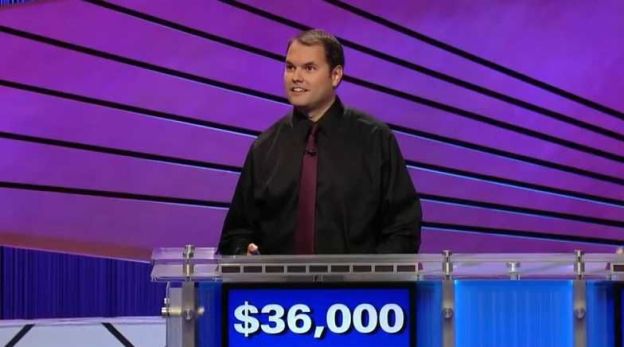 You may have already seen some of the highlights from Roger Craig’s record-breaking run on Jeopardy, in which he went $9k to $36k in the span of two questions (watch the video below) and surpassed previous record-holder Ken Jennings’ single-game winnings. During his run on the show, he won every game taped over a week, and made it to show’s most recent Tournament of Champions.
You may have already seen some of the highlights from Roger Craig’s record-breaking run on Jeopardy, in which he went $9k to $36k in the span of two questions (watch the video below) and surpassed previous record-holder Ken Jennings’ single-game winnings. During his run on the show, he won every game taped over a week, and made it to show’s most recent Tournament of Champions.
And he did it all with the help of a web app he created.
Yes, you read that correctly. A computer scientist with a Ph.D. from the University of Delaware, Craig built an app that used an archive of past Jeopardy questions to help identify show trends and the strengths and weaknesses of his own knowledge base.
In August, Craig gave a talk at the New York “Quantified Self Show & Tell” conference in which he described the app he created. In his speech, he notes that the app revealed a number of interesting trends in the show’s use of questions. For example, questions with the highest value typically come from certain academic fields (like science or architecture), while low-value questions usually come from topics like food or more mainstream subject matter. With the app, he was able to identify specific academic and mainstream topics he needed to study more (like fashion).
While some might be tempted to keep such a secret to success to themselves, Craig tested his app with several friends who went on the show, and they had a similar — though not record-breaking — level of success.
Craig now hopes to create an iPhone app that will allow users to study in a similar fashion.
You can watch the video of Craig going from $9k to $36k in two questions below, and the video of his talk at the New York conference underneath that clip:



